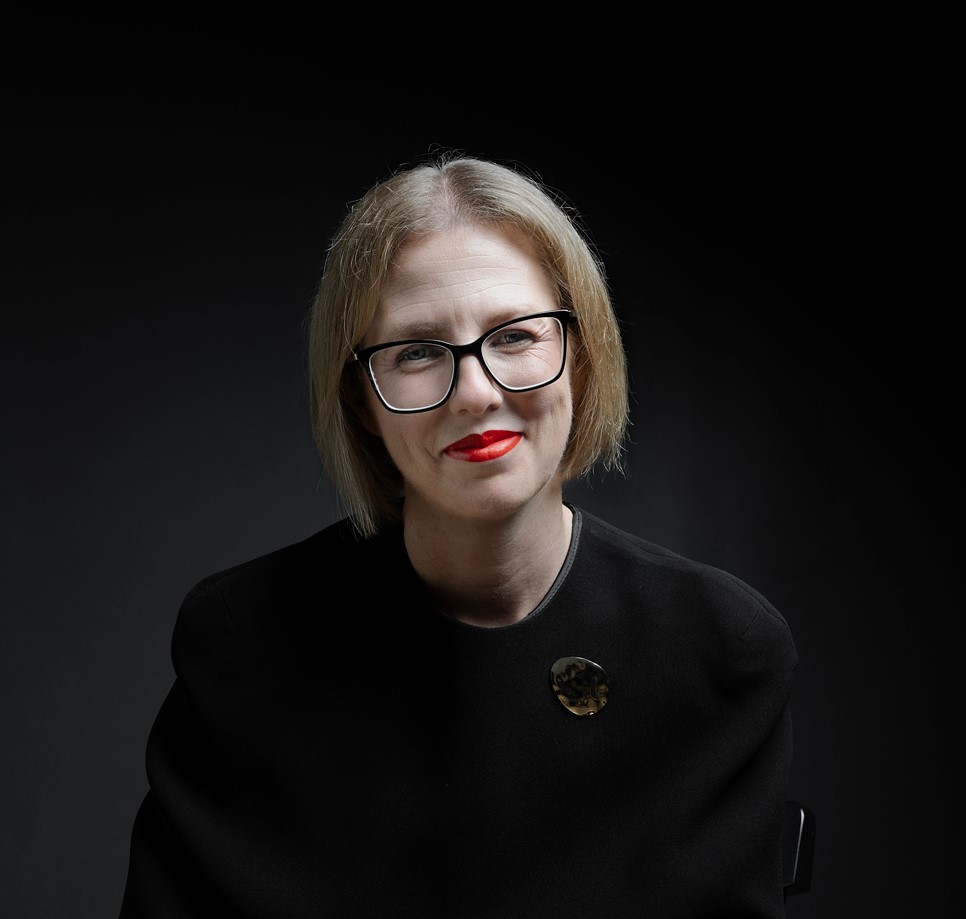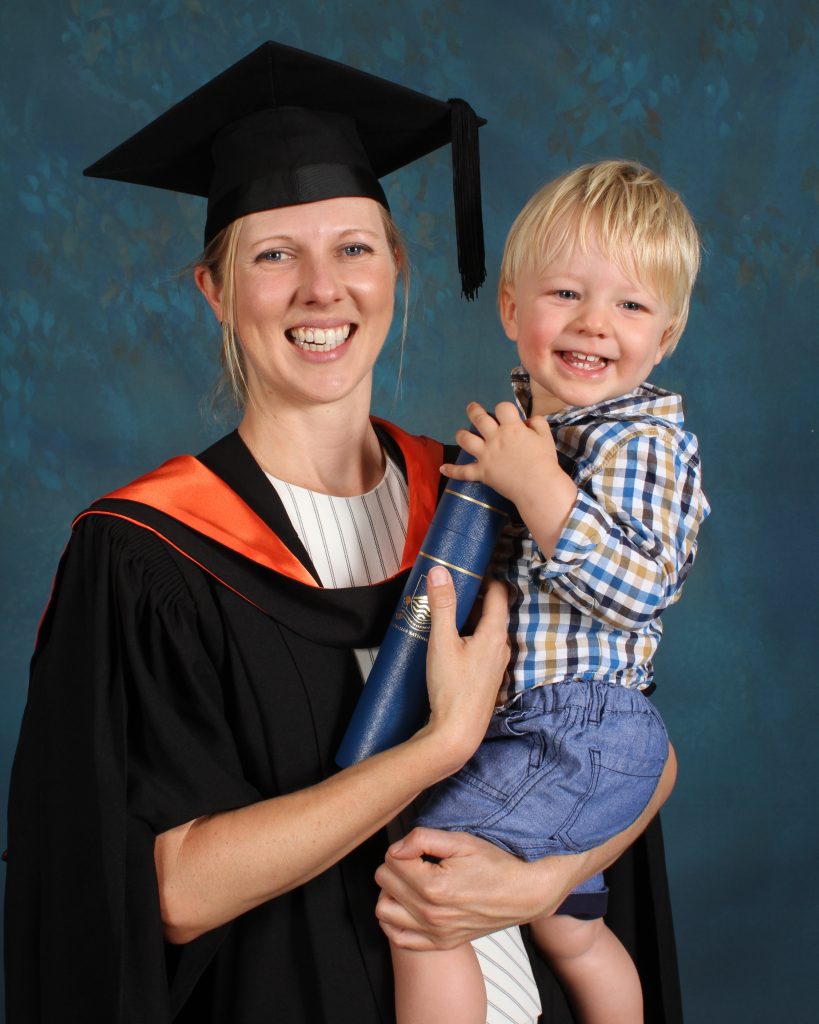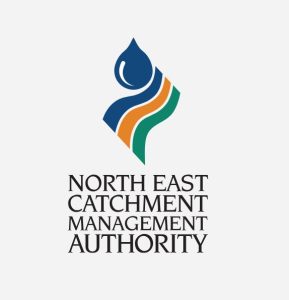Mapping a path to bring sustainability expertise to the boardroom
Marianna O’Gorman has a vision board on the back of her pantry door. She does 5am walk-and-talk hikes in the Sunshine Coast hinterlands with mentors and peers, with the motto to give as much as she receives. She is committed to ongoing learning. There are nine completed degrees and courses listed on her LinkedIn .
Despite this proactive commitment to personal and professional, the one-off strategy session held in July 2021 was the first in her 20-year career.
“I wanted to find a way to work at the level I’ve been working at for the last two decades, but also be a mum,” she said.
Strategy sessions are now a regular part of Marianna’s life, providing her an ‘accountability buddy’ and the opportunity to soundboard both governance and professional next steps.
“If you do it properly – if you do a lot of preparation – these sessions are a great way to move forward. I wrote down seven steps after the 2023 session. I still check them regularly.”
‘Path to the boadroom’ strategy sessions – key outcomes:
- Strategy session 1: Preparation for a Chief Executive Women (CEW) scholarship interview to undertake the Australian Institute of Company Directors’ (AICD) Company Directors Course and the Australian Institute of Superannuation Trustee’s (AIST) Trustee Director Course
- Strategy session 2: A targeted and concise two-page board resumé
- Strategy session 3: The decision to “hit pause” on new board roles to improve work/life balance, plus a seven-step plan to advance future career goals
I am a lot more open with Helga than I would be with my other mentors and peers. The sessions are an investment in my career. I come in prepared. I come ready to work."
Marianna O'Gorman
Professional non-executive director

About Marianna
A climate change and clean energy policy expert with over two decades of experience, Mariana is a company director with roles across the public and not-for-profit sector who is focused on making on a long-term impact.
'Path to the boardroom' sessions
1. July 2021: Plan a path to the boardroom
2. November 2021: Create a board resumé
3. December 2023: Address the balance between personal and professional
Follow-up session
These 60 or 90-minute sessions are used to work on a specific leadership, career or life challenge. Extended sessions are available.
Finding her path
Most of us can pinpoint that serendipitous moment (or moments) in life that set us on our ‘path’. For Marianna, it was while working as a Junior Professional Associate for the World Bank in Washington from 2007 to 2009.
Marianna found her way to the World Bank after her first job as a researcher with the University of Queensland Law School, looking at the criminalisation of poverty within Australia (2004-2006). This was followed by a stint as an intern with the US Congress in Washington (2006).
“When I started at the World Bank there were a couple of Australian Intergovernmental Panel on Climate Change (IPCC) scientists (Professor Habiba Gitay and Professor Ian Noble) who’d just co-won [with Al Gore] the Nobel Peace Prize for their work around climate change,” she said.
This was before it was understood that climate change and poverty were interlinked. Marianna was exposed to “great talks” and revelatory climate change information. Her boss, Jeanette Murry – who was passionate about the field – and the scientists took her “under their wing” and encouraged her to go back to university to study the field.
“I’ve always had a fascination for extreme weather.” She now knew where to channel that interest.
A focus on new purpose
“I knew what I wanted to be doing,” Marianna said of her return to Australia in February 2009, taking on a federal government graduate position.
During her 4.5 years in Canberra, she let it known to all that work in climate and energy policy was her end-goal.
In 2011 she was appointed policy adviser when Greg Combet AM was climate change and industry minister. She worked on the establishment of the Clean Energy Finance Corporation, Climate Commission (now the Climate Council) and Australian Renewable Energy Agency. She represented Australia at climate change negotiations throughout the world.
On the many long plane trips and late at night she studied for her Masters degree with the Australian National University, taking courses such as ‘renewable engineering’ and ‘quantitative modelling’ to build her practical skills. She graduated with her one-year-old son in her arms.
“A lot of people opened doors for me,” she said. “I have always sought the advice of people 10-15 years ahead of me.”
From executive to non-executive
Back in home-state Queensland from 2014, Marianna continued to build her career through roles with The Clean Energy Finance Corporation (CEFC) and The McKell Institute.
Not long after the birth of her third child in 2019, she began the transition to non-executive roles as a way of working at “the same level” but also being present for her growing family.
“I study relentlessly. I searched for content about women and boards. I’d furiously write down any tips and chase down any recommendations. I listened to the Take on Board podcast and then read Helga’s LinkedIn and went ‘oh!’. Hiking, ballroom dancing and social equity!”
Marianna’s introduction to the Take on Board community was the first Take on Board meetup in Noosa in July 2021, followed by the podcast’s third birthday party where she won the big-ticket prize on the night – a free strategy session.

The plan to combine climate and governance expertise
Strategy session no.1 – boardroom path
“I wanted to map a path to bring my passion and expertise in sustainability to the boardroom,” Marianna said of her prep for the first strategy session, held 28 July 2021.
At the time she sat on two not-for-profit boards such as the McKell Institute so already had some governance experience.
During the session it was decided that the time would be used to prep Marianna her upcoming interview for a CEW scholarship to undertake the AICD’s Company Directors Course and the AIST’s Trustee Director Course .
“I used this strategy session to help me articulate why I deserved the scholarship and what I could bring to the boardroom,” she said.
Her (thorough) prep included a list of a number of things she wanted to address, as well as her professional resume and a short summary of the work she had already been doing to address gender inequality including the research on sexual harassment, women’s superannuation and paid parental leave.
The long-time vision boarder and manifester also included an example of what she hoped her resume would look like in 2026.
She won the scholarship in 2021 and completed the AICD and AIST courses in 2022.
Strategy session no.2 – board resumé
The second strategy session followed a few months later – 21 November 2021. In addition to soundboarding potential board roles and building a governance career around a growing family (the kids were aged two, four and six), a board resumé was drafted.
Like many other successful executives looking to pursue a non-executive career, she had an impressive executive resumé, but not a board resumé.
Strategy session no.3 – work/life balance
Marianna’s board career was thriving by the time the third strategy session was held on 5 December 2023.
She was appointed to the Australian Renewable Energy Agency board in July 2023 and to Stanwell Corporation’s board in October 2021. She was also serving on the CEW committee for policy and advocacy and the McKell Institute board.
Then an opportunity arose for a new role in a different sector which Marianna was eager to pursue.
“I wanted to talk to Helga about the conflict between my professional and private life,” she said.
She wanted to “hit pause in 2024 on new board opportunities”, to devote more time to her family, some of whom were quite ill.
“I felt like I needed to invest my time making a serious contribution to the boards I was already on. I needed someone to talk it through. Whilst I wanted to hit pause for 2024, we also talked about where I wanted my career to head when I would have more capacity in a few years’ time.”
It was this session that Marianna left with her list of seven steps. She’s still working on them…
Next… emotional intelligence (EQ)
Just like the boards she works with, Marianna now books an annual strategy session to work on her own development.
- Session 4 – March 2025: Emotional intellignce (EQ) in the boardroom
And the next session? Self-control and adaptability in the boardroom.
Strategy session no.4 – EQ
“In our last strategy session, I asked Helga if we could work on my soft skills in the boardroom,” she said.
The revelation that she needed to work on her soft skills came from thinking about swimming: “I can’t claim to have swum from England to France like my sister, but boy do I love ocean swimming! Alison Streeter – ‘the Queen of the English Channel’ –swam the 33km+ channel 43 times in her career and used to say that channel swimming is 80 per cent mental, 20 per cent the rest.
Marianna began to think about the boardroom in the same way.
“I’ve worked with some amazing directors and execs and I think it’s 80 per cent about their presence and emotional intelligence and 20 per cent their technical skills and the rest. The problem is, the 20% is the stuff you can read about and learn. The 80 per cent is much more elusive.
“Things like building influence, how to be direct without being confrontational and how to build trust and relationships. For me, this area was a bit of a dichotomy. I’d always felt I had a very high emotional intelligence (EQ), however, I am cognisant that some of my behavioural traits could (at best) be described as ‘quirky’ and other traits don’t always produce the best outcome in the boardroom. So how could both be true?”
The Emotional Capital Report (ECR) was the right tool to use for this strategy session.
The ECR is a validated, scientifically developed psychometric assessment tool designed to measure and quantify emotional intelligence (EQ) in relation to leadership potential. The assessment took Marrianna around half an hour to complete. The 60-minute one-off strategy session was used to debrief and provide feedback.
“It was a revelation as I discovered that you can’t ‘have’ (or not have) emotional intelligence. It’s measured through eight facets, not one – and you’re likely strong in some and weaker in others. Inner (self-knowing, self-control, self-confidence, self-reliance), other (empathy, relationship skills, straightforwardness) and outer (adaptability, optimism and self-actualisation). It wasn’t black and white. You could measure strongly in some areas and not in others.”
This revelation led her to understanding the impact of the ECR results on other areas of her life.
“The ECR helped me cement what my superpowers are (self-actualisation and empathy). Things you just think and do and assume everyone does too, but they don’t! It also identified a few areas of ‘development need’ (self-control and adaptability). It was a bit of an ‘ah ha!’ moment. As for how I’m going to develop them, well that’s for the next coaching session!”



